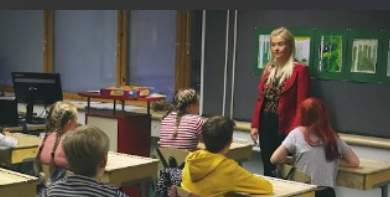“Navigating the Controversy: Critical Race Theory in Education”

The term “critical race Theory in Education has become a lightning rod for debate, sparking sharp divisions between liberals and conservatives. On one side, it’s seen as a framework for understanding how systemic racism has shaped public policy in America. On the other, it’s viewed as a divisive ideology that pits people of color against white people. This contentious issue has exploded into the public arena, particularly in K-12 education, where several state legislatures are considering bills to ban its teaching in classrooms.
Theory in Education
However, the reality is far more complex than this binary portrayal suggests. Over the past decade, societal awareness has grown regarding issues such as housing segregation, the consequences of 1990s criminal justice policies, and the enduring legacy of slavery on Black Americans. Despite this increased awareness, there remains significant disagreement about the appropriate governmental response to address these historical injustices. When children and education are added to the equation, the debate becomes even more volatile.
The concept of critical race theory challenges traditional narratives about race and power in America. It emphasizes the pervasive influence of racism in shaping social structures, institutions, and policies. Proponents argue that understanding this framework is essential for addressing systemic inequalities and advancing racial justice. They advocate for a curriculum that acknowledges the complexities of American history, including the ongoing effects of racism, to foster empathy, critical thinking, and a more inclusive society.
Opponents of critical race theory, however, raise concerns about its perceived emphasis on group identity and collective guilt. They argue that focusing on race exacerbates divisions and fosters resentment among different racial groups. Some critics fear that teaching critical race theory in schools will promote a narrative of victimhood and perpetuate a sense of grievance, rather than fostering unity and individual responsibility.
At the heart of the debate is the question of how to approach issues of race and racism in education. While many agree on the importance of teaching about America’s complex racial history, there is disagreement over the appropriate methods and messages. Some advocate for a colorblind approach that emphasizes equality and meritocracy, while others argue for a race-conscious approach that acknowledges the unique experiences and challenges faced by marginalized groups.
The controversy over critical race theory reflects deeper societal tensions around identity, history, and power. It highlights the ongoing struggle to reckon with America’s legacy of racism and oppression, as well as the competing visions for a more just and equitable future. In this charged environment, education becomes both a battleground and a potential catalyst for social change.
Ultimately, the debate over critical race theory in education is not just about what children learn in the classroom—it’s about the kind of society we want to create. It forces us to confront uncomfortable truths about our past and present, and to grapple with difficult questions about justice, equity, and reconciliation. How we navigate these debates will shape the future of our nation and the lives of generations to come.




